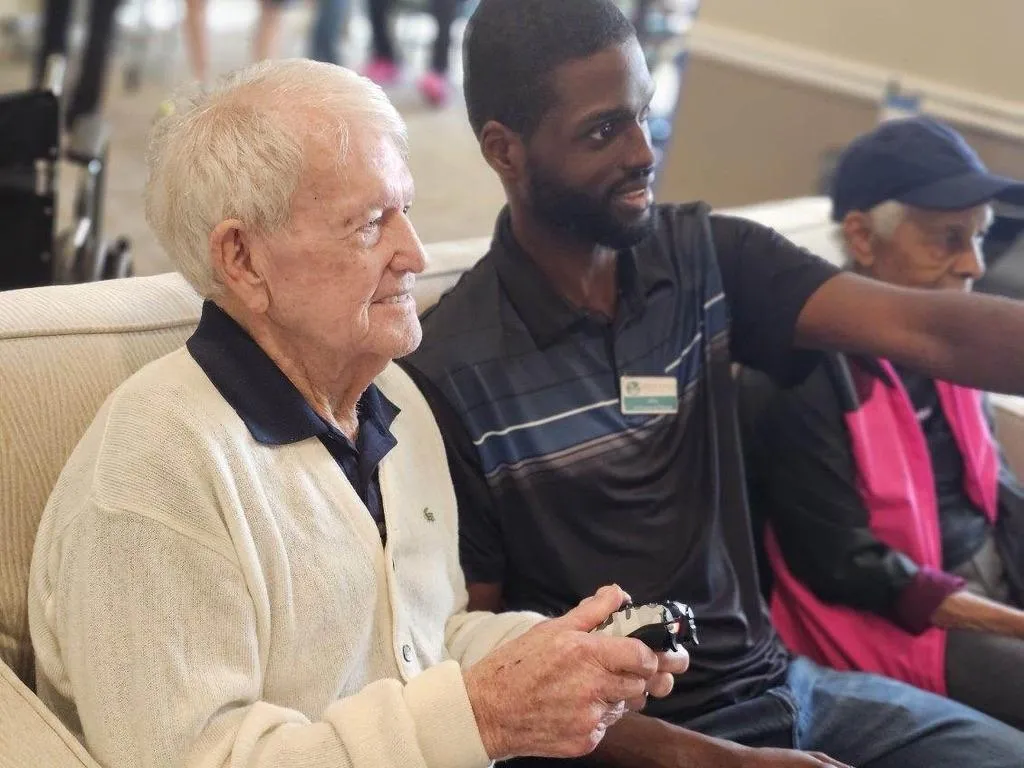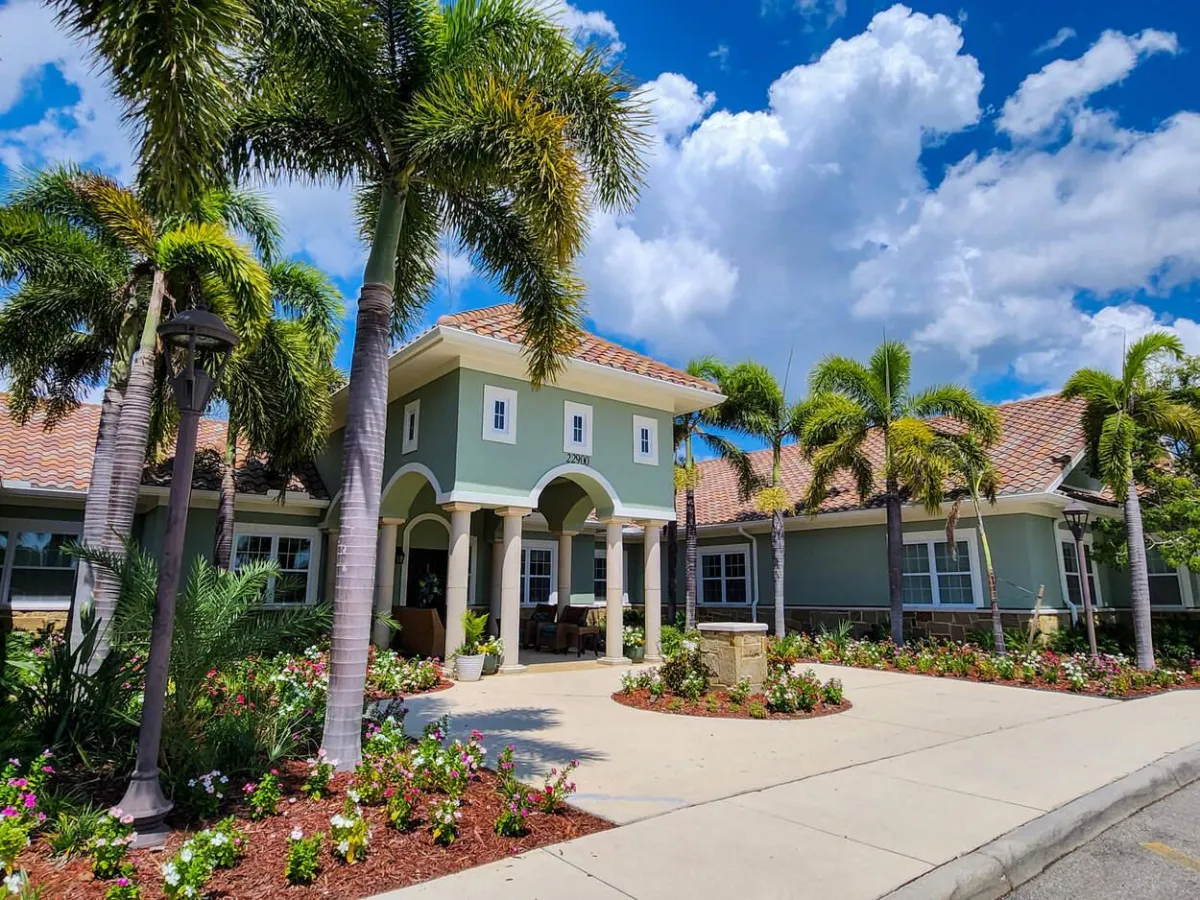Blog
Enjoy these articles on finding the right care for your loved one

The Importance of Specialized Training for Memory Care Communities
Caring for individuals with dementia is a complex task. It requires a unique set of skills and knowledge.
Whether you're a caregiver, a healthcare professional, or a family member of someone with dementia, having the right training can help you interact and care for seniors with memory impairments. It equips you to handle the unique challenges of dementia care.
In Estero, Florida, the need for well-trained memory care professionals is growing—along with the need for high-quality living communities. This is due to an aging population.
This article will delve into the importance of specialized training for memory impairment. It will highlight its benefits for caregivers and individuals with dementia.
We will explore how such training can improve the quality of care in memory care communities.
Understanding Memory Care and Its Challenges
Memory care is a specialized type of elder care. It is tailored to meet the specific needs of individuals with Alzheimer's disease, dementia, and other types of memory problems.
The challenges in memory care are unique. They require a deep understanding of the disease and its progression.
Staff must be able to manage behavioral issues, communication difficulties, and safety concerns. They need to be able to provide emotional support and engage residents in meaningful activities.
Here are some of the key challenges in memory care:
Understanding and managing behavioral changes
Communicating effectively with residents
Ensuring the safety of residents
Providing emotional support and engagement
Dealing with the physical health issues often associated with dementia
These challenges underscore the need for specialized training. It equips memory care staff with the necessary skills and knowledge to provide high-quality care.
The Role of Specialized Training in Dementia Care
Having the right training equips staff with the skills and knowledge to manage the unique challenges of this field.
Training programs often cover a range of topics. These include communication strategies, behavior management, and safety protocols. They also focus on creating a therapeutic environment and personalizing care plans to meet individual needs.
Here are some key areas covered in specialized training:
Effective communication strategies with residents
Behavior management techniques
Safety protocols and emergency procedures
Creating a therapeutic environment
Personalizing care plans
Specialized training also emphasizes the importance of a person-centered approach. This approach takes into account the needs of each resident.
Keeping up to date on education is crucial. It keeps staff updated on new research and techniques in dementia care.
In essence, specialized training is an investment in the overall health of your loved ones. It leads to improved resident outcomes and enhances the quality of care.
Key Components of Specialized Training Programs
Specialized training programs for memory care staff are comprehensive and multidisciplinary. They involve experts from various healthcare fields.
These programs cover a wide range of topics. They include understanding dementia, communication strategies, behavior management, and safety protocols. They also focus on legal and ethical considerations in dementia care.
Here are some key components of specialized training programs:
Knowledge of dementia progression and its effects on behavior and cognition
Communication strategies for effective interaction with residents
Techniques for managing challenging behaviors
Safety protocols and emergency procedures
Understanding of legal and ethical considerations in dementia care
Training on the latest technologies and tools for dementia care
Cultural competency training to ensure respectful and appropriate care for all backgrounds
These components ensure that memory care staff are well-equipped to provide high-quality care. They also help in creating a supportive and collaborative team environment within the memory care community.
Benefits of Specialized Training for Memory Care Staff
Specialized training offers numerous benefits for memory care staff. It equips them with the skills and knowledge to manage the unique challenges of dementia care.
One of the key benefits is improved resident outcomes. Staff who are well-trained can provide better care, leading to improved quality of life for residents.
Here are some other benefits of specialized training:
Reduced caregiver stress and burnout by providing coping strategies and support
Enhanced credibility and trustworthiness of care communities
Better preparedness for real-life scenarios through simulation exercises
Improved ability to personalize care plans to meet the individual needs of each resident
In essence, specialized training is an investment in the overall health of the memory care community. It ensures that staff are capable of providing the best possible care to residents.
The Impact of Specialized Training on Resident Outcomes
Specialized training for memory care staff has a direct impact on resident outcomes. Staff who are well-trained can recognize early signs of dementia and respond appropriately. This early intervention can slow the progression of the disease and improve the resident’s quality of life.
Training also emphasizes the importance of engaging residents in meaningful activities. These activities can stimulate cognitive function and enhance the emotional well-being of the resident.
In conclusion, specialized training not only benefits the staff but also the residents they care for. It leads to improved resident outcomes and a better quality of life for residents.
Specialized Training in Estero, Florida
Estero, Florida, has an aging population and a growing need for well-trained memory care professionals. Local memory care communities have recognized this need and invested in specialized training programs.
These programs have equipped the staff with the necessary skills and enhanced the credibility of these communities. Families of dementia residents often seek out these communities, recognizing the value of well-trained staff.
Our community in Estero, Florida is a prime example of how investing in specialized training can benefit memory care communities, their staff, and their residents.
Conclusion: The Ethical and Practical Imperative for Specialized Training
Specialized training for memory care staff is not just a practical necessity, but an ethical imperative. It equips caregivers with the skills and knowledge to provide high-quality, compassionate care to individuals with dementia.
Investing in such training is a testament to a community's commitment to its residents, their families, and its staff. It's a step towards ensuring that every individual with dementia receives the care they deserve.

Gulf Coast Memory Care
(239) 221-6120
22900 Lyden Dr, Estero, FL 33928
AL# 12921





